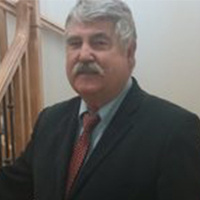Eagle Mountain DUI-DWI Lawyer, Utah
Sponsored Law Firm
-
 x
x

Click For More Info:
-
Melton Law
5955 South Redwood Road Suite 103 Taylorsville, UT 84123» view mapCriminal Defense and Accident & Injury Legal Expertise You Can Rely On
Melton Law is dedicated to providing competent and great representation to our clients. We will be there to help you and answer any questions you have every step of the way.
800-952-9770
HOLLAND Kent Holland Law
✓ VERIFIEDCriminal, DUI-DWI, Personal Injury, Accident & Injury, Car Accident
General Legal Services
I represent personal injury cases throughout the Wasatch Front. If you have been in an accident and suffered a debilitating injury, or your insurance ... (more)
FREE CONSULTATION
CONTACTBenjamin Scott Lamb
DUI-DWI, Consumer Protection, Employee Rights, Estate Planning
Status: In Good Standing
Heather M Seegmiller
Family Law, Bankruptcy, Landlord-Tenant, Litigation, DUI-DWI
Status: In Good Standing Licensed: 21 Years
FREE CONSULTATION
CONTACTScott E Williams
Criminal, Divorce & Family Law, Adoption, Child Custody, DUI-DWI
Status: In Good Standing Licensed: 28 Years
Casey Todd Hoyer
Child Custody, Juvenile Law, White Collar Crime, DUI-DWI
Status: In Good Standing Licensed: 9 Years
Thomas L Mclelland
Traffic, White Collar Crime, Domestic Violence & Neglect, DUI-DWI
Status: In Good Standing Licensed: 16 Years
Allen F. Thomason
Landlord-Tenant, Lawsuit & Dispute, Family Law, DUI-DWI
Status: In Good Standing Licensed: 25 Years
Tyler Ayres
Traffic, White Collar Crime, DUI-DWI, Criminal
Status: In Good Standing Licensed: 23 Years
 William Melton Taylorsville, UT
William Melton Taylorsville, UT Practice AreasExpertise
Practice AreasExpertise

